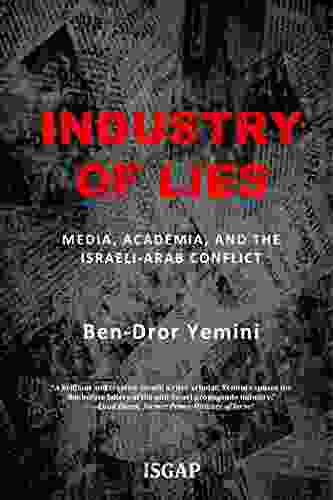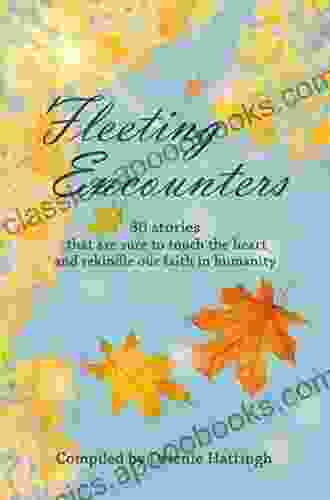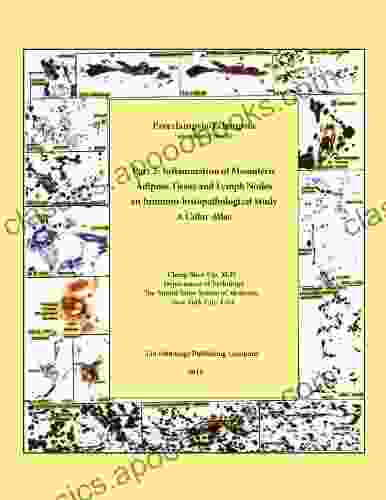Media, Academia, and the Israeli-Arab Conflict: A Complex Interplay

The Israeli-Arab conflict, a protracted and multifaceted struggle, has been the subject of extensive media coverage and academic research. However, the role that these institutions play in shaping the narrative and influencing public opinion remains complex and under-examined. This article delves into the intricate relationship between media, academia, and the Israeli-Arab conflict, exploring their profound impact on the formation and dissemination of knowledge.
The Media's Role
Media outlets, including newspapers, television, and online platforms, serve as primary sources of information for the public on current events and historical contexts. Their coverage of the Israeli-Arab conflict has a significant influence on how individuals perceive and understand the situation.
4.8 out of 5
| Language | : | English |
| File size | : | 3727 KB |
| Text-to-Speech | : | Enabled |
| Screen Reader | : | Supported |
| Enhanced typesetting | : | Enabled |
| Word Wise | : | Enabled |
| Print length | : | 557 pages |
| Lending | : | Enabled |
Studies have shown that media framing, or the way in which information is presented, can shape public opinion and guide policy decisions. For instance, a study by the Harvard Kennedy School found that media coverage of the Israeli-Palestinian conflict tended to favor Israel's narrative, potentially influencing public support for Israeli policies.
Moreover, the media's reliance on expert sources, often academics and researchers, contributes to the legitimization of certain perspectives and interpretations. By providing a platform for specific voices, the media can amplify and reinforce particular narratives.
Academia's Involvement
Academia, particularly universities and research institutions, plays a crucial role in producing and disseminating knowledge about the Israeli-Arab conflict. Scholars conduct research, publish findings, and engage in public debates, shaping the intellectual landscape surrounding the issue.
Academic research can provide valuable insights and challenge prevailing narratives. However, it is not immune to biases and political influences. Critics argue that certain academic institutions and funding sources may favor particular perspectives, potentially skewing the production of knowledge.
Furthermore, academia's engagement with the Israeli-Arab conflict often involves collaboration with policy-making bodies and think tanks, which can further influence the dissemination and application of research findings.
The Interplay
The relationship between media and academia is not unidirectional. Academics contribute to media coverage by providing expert commentary and analysis, while media attention can bring academic research to a wider audience. This interplay shapes the public's understanding of the Israeli-Arab conflict.
For example, the publication of an influential academic study on the history of the conflict may prompt media outlets to revisit their coverage and incorporate new perspectives. Conversely, media coverage of a particular event, such as a peace negotiation or a violent incident, can prompt academics to conduct research to better understand the underlying dynamics.
Implications for Public Opinion
The media-academia interplay has profound implications for public opinion on the Israeli-Arab conflict. By shaping narratives and legitimizing certain interpretations, these institutions influence how individuals perceive the situation and form their opinions.
This influence is particularly significant in societies where access to reliable information is limited or where political polarization is high. Media coverage that is biased or inflammatory can exacerbate tensions and hinder constructive dialogue.
Moreover, public opinion can influence policy decisions, as governments and politicians are often responsive to the prevailing views of their constituents. This highlights the importance of balanced and evidence-based reporting and research in promoting informed public opinion.
The relationship between media, academia, and the Israeli-Arab conflict is complex and multifaceted. Media outlets frame the narrative, academia produces and legitimizes knowledge, and they engage in a dynamic interplay that shapes public opinion.
Understanding this interplay is crucial for navigating the complexities of the conflict and promoting informed public discourse. By examining the biases and influences at play, we can strive for more balanced and evidence-based coverage and research, empowering individuals to form their own well-informed opinions.
Only through a nuanced understanding of the media-academia relationship can we hope to foster a deeper comprehension of the Israeli-Arab conflict and contribute to constructive dialogue and peaceful resolution.
4.8 out of 5
| Language | : | English |
| File size | : | 3727 KB |
| Text-to-Speech | : | Enabled |
| Screen Reader | : | Supported |
| Enhanced typesetting | : | Enabled |
| Word Wise | : | Enabled |
| Print length | : | 557 pages |
| Lending | : | Enabled |
Do you want to contribute by writing guest posts on this blog?
Please contact us and send us a resume of previous articles that you have written.
 Book
Book Novel
Novel Page
Page Chapter
Chapter Text
Text Story
Story Genre
Genre Reader
Reader Library
Library Paperback
Paperback E-book
E-book Magazine
Magazine Newspaper
Newspaper Paragraph
Paragraph Sentence
Sentence Bookmark
Bookmark Shelf
Shelf Glossary
Glossary Bibliography
Bibliography Foreword
Foreword Preface
Preface Synopsis
Synopsis Annotation
Annotation Footnote
Footnote Manuscript
Manuscript Scroll
Scroll Codex
Codex Tome
Tome Bestseller
Bestseller Classics
Classics Library card
Library card Narrative
Narrative Biography
Biography Autobiography
Autobiography Memoir
Memoir Reference
Reference Encyclopedia
Encyclopedia Andrew Imbrie
Andrew Imbrie Tinsley E Yarbrough
Tinsley E Yarbrough Hugh Rowland
Hugh Rowland Carmen Gil
Carmen Gil Jay Althouse
Jay Althouse J L Anderson
J L Anderson Krishnakumar Thankappan
Krishnakumar Thankappan Wendy Davis
Wendy Davis Taylor Swift
Taylor Swift Andrew Brel
Andrew Brel Andrew Godfrey
Andrew Godfrey Heather Blanton
Heather Blanton N D Wilson
N D Wilson Jen Kim
Jen Kim Iain M Banks
Iain M Banks Blou Bliss
Blou Bliss Nir Arielli
Nir Arielli Andrew Brown
Andrew Brown Andrew Hudgins
Andrew Hudgins Denton Salle
Denton Salle
Light bulbAdvertise smarter! Our strategic ad space ensures maximum exposure. Reserve your spot today!
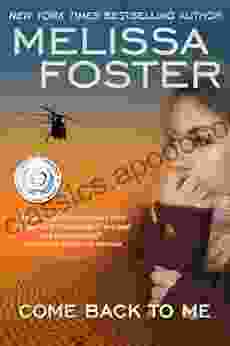
 Jared PowellUnveiling the Heartfelt Saga of Love, Loss, and the Unbreakable Spirit: "Come...
Jared PowellUnveiling the Heartfelt Saga of Love, Loss, and the Unbreakable Spirit: "Come...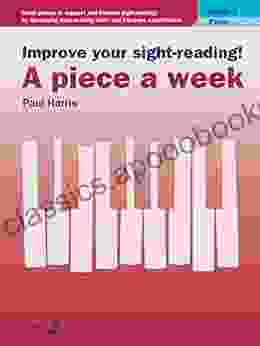
 Gabriel MistralEmpowering Sight-Readers: Unlock the Secrets of Note Reading with "Short...
Gabriel MistralEmpowering Sight-Readers: Unlock the Secrets of Note Reading with "Short... Juan ButlerFollow ·8.5k
Juan ButlerFollow ·8.5k Michael CrichtonFollow ·16.6k
Michael CrichtonFollow ·16.6k Russell MitchellFollow ·10.1k
Russell MitchellFollow ·10.1k Eric HayesFollow ·11.5k
Eric HayesFollow ·11.5k Graham BlairFollow ·14.3k
Graham BlairFollow ·14.3k Marcel ProustFollow ·4.4k
Marcel ProustFollow ·4.4k Jett PowellFollow ·2.6k
Jett PowellFollow ·2.6k Donald WardFollow ·14.3k
Donald WardFollow ·14.3k
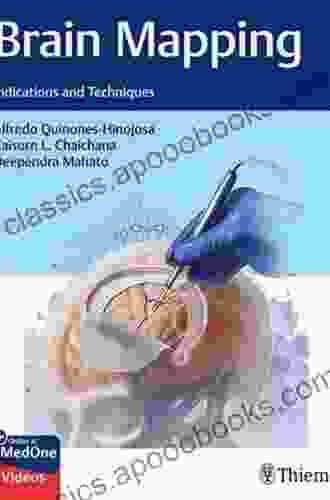
 Devin Ross
Devin RossUnlocking the Secrets of the Mind: Brain Mapping...
The human...
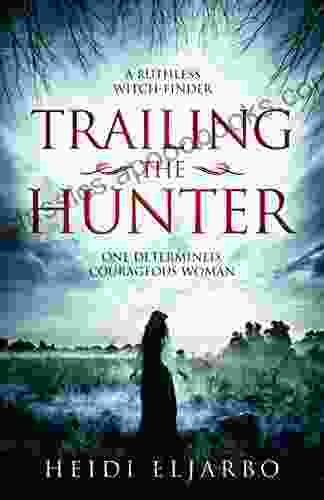
 Jacob Foster
Jacob FosterNovel of Misconception, Truth, and Love: A Journey of...
Unraveling the Lies We...
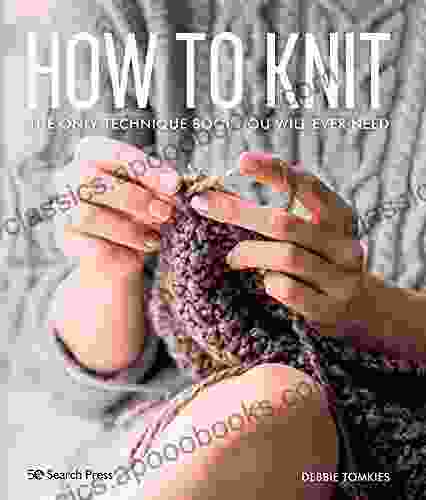
 Benji Powell
Benji PowellThe Only Technique You Will Ever Need: Unlocking the...
By [Author's...

 Pete Blair
Pete BlairUnveiling the Enchanting World of 'Magnolia House' by...
A Literary...
4.8 out of 5
| Language | : | English |
| File size | : | 3727 KB |
| Text-to-Speech | : | Enabled |
| Screen Reader | : | Supported |
| Enhanced typesetting | : | Enabled |
| Word Wise | : | Enabled |
| Print length | : | 557 pages |
| Lending | : | Enabled |


